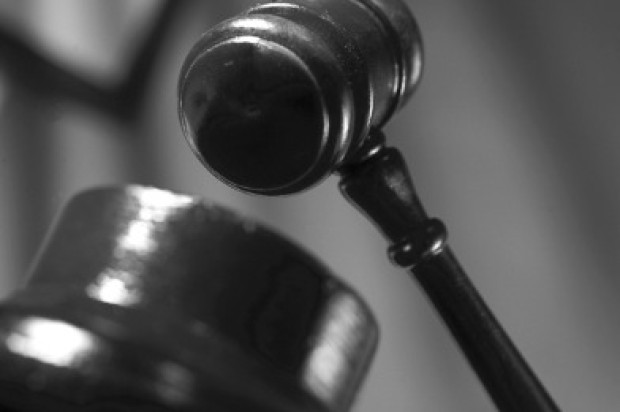
U.S. Attorney Melinda Haag of San Francisco, who is stepping down from her post on Sept. 1, says she loves her job but is leaving because it will end soon anyhow when a new president is elected.
“I love this job. I feel honored and privileged to have it. But the reality is that it ends. It’s a presidential appointment,” Haag said in an interview on Tuesday.
Haag, who recently turned 54, was appointed by President Obama in 2010 as the U.S. attorney for Northern California, which includes the Bay Area and northern coastal California.
She supervises a staff of 131 lawyers in San Francisco, Oakland and San Jose who handle federal prosecutions and civil cases concerning the government.
U.S. attorneys serve four-year terms and then can be allowed by the attorney general to stay on until a successor is named. Incoming presidents usually replace all or nearly all the nation’s 93 U.S. attorneys.
Haag unexpectedly announced on July 29 that she will leave office on Sept. 1.
She said on Tuesday that although she’ll be departing 14 months before the presidential election, “part of my thinking is that it’s best for the office to have a smooth transition.”
Haag said she hopes her longtime chief aide, First Assistant U.S. Attorney Brian Stretch, will be able to provide that transition by being allowed to serve as acting U.S. attorney until there is a new presidential appointment.
She said one of her goals as U.S. attorney was to focus on complex cases rather than on numbers of cases prosecuted.
Her view was, “Let’s turn the ship a little by not focusing on numbers and instead handling cases we should be focusing on,” Haag said.
Cases she supervised include the political corruption prosecution of former state Sen. Leland Yee, D-San Francisco/San Mateo; San Francisco and East Bay police corruption cases; trials of gang members on charges of racketeering, drug dealing and murder; and the ultimately unsuccessful prosecution of home-run champion Barry Bonds on perjury and obstruction of justice charges.
Other cases were prosecutions of bank fraud, investment fraud, distribution of child pornography, human trafficking and environmental violations. A criminal case charging PG&E Co. with violating a pipeline safety law is awaiting trial.
In 2011, Haag joined the three other U.S. attorneys in California in a crackdown on medical marijuana dispensaries perceived to be large-scale commercial enterprises. Federal lawyers used the threat of civil forfeiture lawsuits to force dispensaries out of their leased premises.
Asked to comment on the Bonds case, Haag said she couldn’t comment specifically on the former San Francisco Giants outfielder, who this year won an appeals court ruling overturning his conviction for obstructing justice in 2004 grand jury testimony.
“Barry Bonds is not guilty right now in the eyes of the law,” she noted.
But Haag said that in general, “The whole system would fail if people coming before a grand jury routinely raised their right hands and lied.
“Even if someone was not convicted, it’s a reminder to people that it is important to tell the truth when under oath and there are consequences for not doing so. I hope that message is not lost,” she said.
A federal appeals court in April struck down Bonds’ 2011 conviction for obstructing justice when testifying before a grand jury investigating a Burlingame laboratory’s sales of performance-enhancing drugs to professional athletes.
The case ended last month when the U.S. solicitor general decided not to appeal that decision to the Supreme Court. Prosecutors in Haag’s office previously dropped three other perjury charges on which the trial jury had deadlocked.
Haag said she couldn’t comment on the case of Yee and 27 others charged in a corruption and organized-crime indictment last year.
In July, Yee and political consultant Keith Jackson pleaded guilty to conspiring to accept campaign contributions as bribes in return for political favors by Yee. Jackson’s son and another man pleaded guilty to a separate organized-crime conspiracy.
Charges including organized-crime conspiracy, trafficking in stolen goods and money laundering are still pending against Chinatown association leader Raymond “Shrimp Boy” Chow and 23 other defendants.
Chow, who is due to go on trial with seven others in October, recently claimed in a filing that prosecutors unfairly and selectively targeted him while failing to pursue probes of public officials whose names surfaced in wiretaps.
The prosecutors from Haag’s office responded in a brief filed Tuesday that Chow’s claims “are drawn out of thin air with absolutely no substantiation in evidence or in fact.”
Haag said that in the 2011 initiative against dispensaries by the U.S. attorneys in California, “We were all four seeing the explosion of the growth of the marijuana industry and the spreading of misinformation that this could happen and the federal government wouldn’t do anything about it.”
The U.S. Justice Department has said that while it is not a federal priority to prosecute seriously ill patients using the drug under state medical marijuana laws, federal prosecutors have the authority to go after large-scale cultivation and sales operations under U.S. laws criminalizing marijuana production and distribution.
Each of the U.S. attorneys in the state took a somewhat different approach. In San Diego, Haag said, the U.S. attorney sought to shut down all dispensaries. In Northern California, Haag targeted those that were near schools, parks and playgrounds.
Haag estimated that lawyers in her office have closed approximately 40 dispensaries through the civil forfeiture procedure.
Asked whether she considered the initiative successful, Haag said, “To the extent that the issue was unchecked explosive growth, we hope there is now a check” on such growth in the industry.
Before becoming U.S. attorney, Haag worked for nine years in U.S. attorney’s offices in Los Angeles and San Francisco and for seven years as a partner in a San Francisco law firm.
She said she will continue her career, but has not decided what to do next and doesn’t plan to think about it until she leaves.
Julia Cheever, Bay City News









